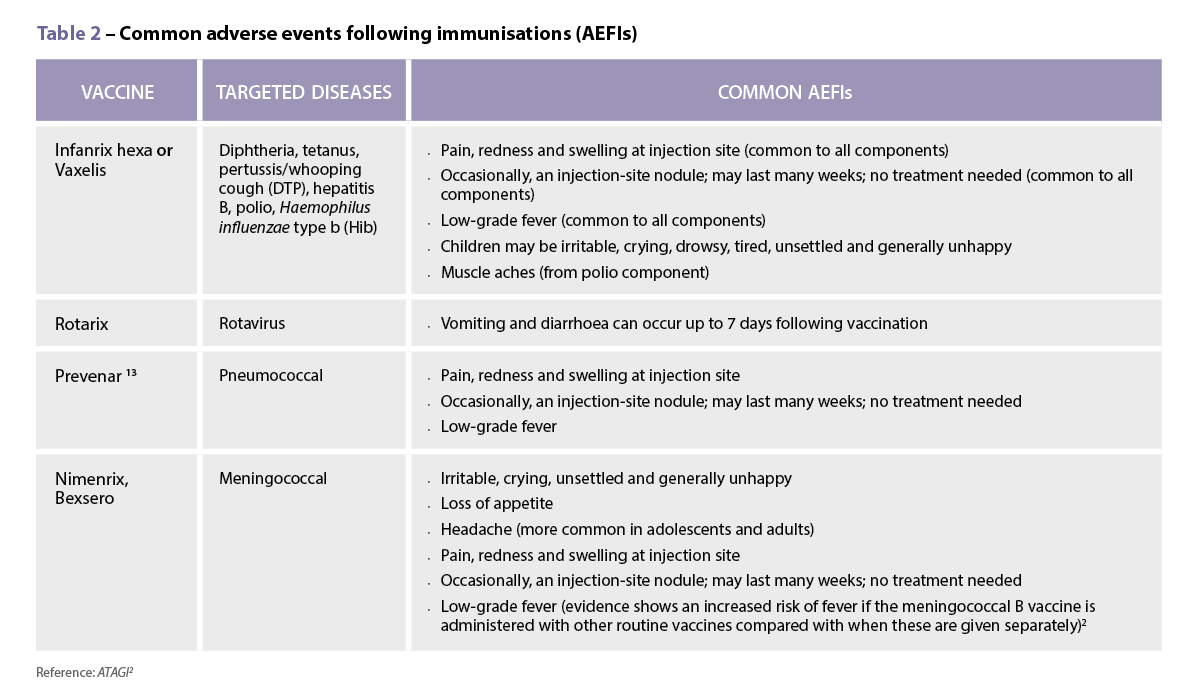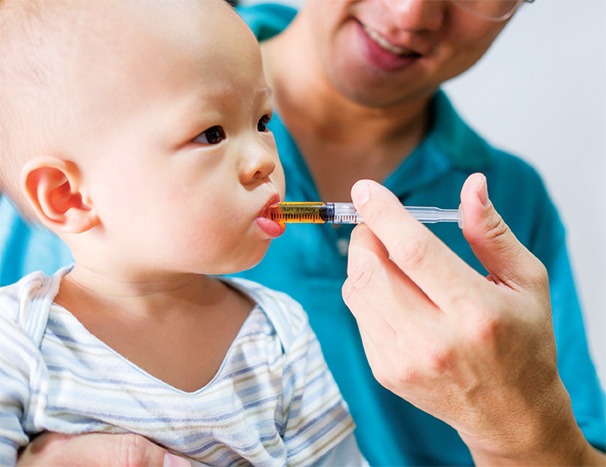Uncertain first days as a registered pharmacist, navigating expanded scope of practice or working in isolated environments can be lonely and confronting. New supports are now helping pharmacists build confidence, resilience and professional networks.
It’s often said every pharmacist remembers their first script. The first prescription they checked – and checked again (and possibly again and again) once they attained full registration.
What’s not always remembered is the sense of fear, trepidation or anxiety that often accompanies stepping up into the responsibility and accountability of becoming a registered pharmacist.
While the first script may be the most memorable, those early weeks and months can be overwhelming as new and unpredictable scenarios arise.
But initial registration may not be the only time these feelings of isolation and uncertainty arise.
It may be around a change in career, such as a newly credentialled pharmacist forging a new path in undertaking Home Medicines Reviews (HMRs), working as an on-site aged care pharmacist for the first time or a locum working in rural or remote community pharmacies on their own in new premises with few colleagues to support them.
Uncertainty can also peak around the introduction of new services or taking on additional scope of practice.
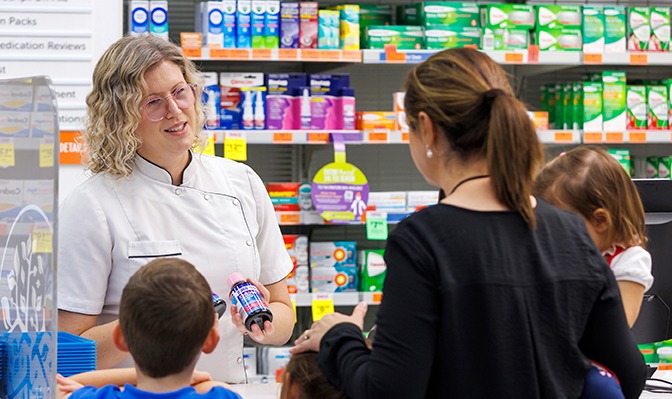 Pharmaceutical Society of Australia acting General Manager – Education and Training Jacob Warner MPS says the pharmacy profession these days is dynamic and presents challenges.
Pharmaceutical Society of Australia acting General Manager – Education and Training Jacob Warner MPS says the pharmacy profession these days is dynamic and presents challenges.
‘There’s been significant changes to the practice of pharmacy recently, with increasing scope of practice and more services being offered by pharmacists,’ he adds.
So where do you turn when these situations arise? And how do you build your confidence, capacity and resilience?
Let’s start at the very beginning
The early days can be some of the toughest.
‘Early career pharmacists (ECPs) often feel their first 100 days of practice as registered pharmacists, away from the safety net of their preceptor, are the most challenging,’ Mr Warner says.
To help new pharmacists find their feet and navigate their early days on the job, PSA recently launched the re-invented Flying Start program to provide ECPs with tools and strategies for meeting new challenges.
The program covers four modules that include:
- legal and ethical challenges and scope of practice changes
- leadership and interpersonal skills
- delivering primary health care (and completing a nationally recognised unit of competency that can be credited towards the Graduate Diploma of Advanced Pharmacy Practice for eligible learners)
- well-being and career development.
Each of the modules includes a mandatory interactive online-facilitated workshop with accredited Group 2 points accrued by attending pharmacists.
‘The first Flying Start program was run in early 2023,’ Mr Warner says.
‘Given the exciting and fast-paced changes to practice we have seen in pharmacy since then, the 2025 program has been re-invented to provide ECPs with even more ways to meet challenges they will face in their first 100 days and provide them a “passport for success” as they embark on their pharmacy career.’
Flying Start learners can use the program to hone their clinical skills as they follow a patient journey through a series of online clinical games, with increasing complexity.
Participants are also given the opportunity to have a one-on-one meeting with a mentor who can answer questions and provide advice and support.
An alumni of the most recent Flying Start program, Perth’s Zahraa Bohrat MPS, recalls a course assessment on leadership across her organisation.
In it she was asked what she thought could be improved.
‘Despite only just starting my job, this unit pushed me to find ways to improve our services!’ she says.
There’s always someone you can turn to
No matter what stage of career you’re at, when feeling isolated or uncertain, it can be difficult to know where to go for answers or support. If you’re lucky, you’re practising in a team environment with colleagues to bounce ideas off.
But similarly, you may have a lifeline on the end of the phone/email/SMS to help. It may be a colleague or a mentor. Or it might be a call to the PSA Pharmacist to Pharmacist Advice Line.
Bill Wallace MPS, a professional support adviser with the advice line, says pharmacists who work in isolation face varied challenges. These can include limited breaks, limited resources and options for patient referral, a lack of immediate peer support and the difficulty of remaining up to date with professional development and the expanded scope of practice.
Launched in March 2020, the advice line is operational from 8.30 am to 5 pm AEST, Monday to Friday. ‘The number of enquiries has been increasing each month since the service commenced,’ he adds. ‘It is currently averaging about 60 cases per week, split between 40 calls per week and 20 via emails to the PSA website,’ Mr Wallace says.
 The time required to support each case varies, depending on the nature of the enquiry and how much time is needed to obtain the necessary information, he adds. ‘Simple inquiries can be answered at the time of the call,’ he says. ‘More involved enquiries may involve discussions with subject-matter experts or state and federal regulators.’
The time required to support each case varies, depending on the nature of the enquiry and how much time is needed to obtain the necessary information, he adds. ‘Simple inquiries can be answered at the time of the call,’ he says. ‘More involved enquiries may involve discussions with subject-matter experts or state and federal regulators.’
Most queries relate to continuing professional development, immunisation, the scope of practice and training and regulatory matters, Mr Wallace adds. Calls rarely relate to emergencies. ‘Pharmacists are usually very good at triaging emergency situations.’
Pharmacist support is also available from professional and peer networks, Wallace says, including pharmacy organisations such as PSA, the Pharmacists’ Support Service (PSS), Pharmaceutical Defence Limited (PDL), the Australian Health Practitioner Regulation Agency (Ahpra) and the Pharmacy Guild of Australia, as well as primary health networks (PHNs).
While generally a PSA member benefit, the Pharmacist-to-Pharmacist line is currently also available to non-members for queries regarding the NSW Opioid Treatment Program (OTP) and the role and requirements of pharmacists providing nicotine dependence support.
Meanwhile, the PSS offers help for pharmacists, pharmacy interns, and retired pharmacists who are struggling with work stress, burn-out, the after-effects of the pandemic and so on. They may need emotional support or counselling.
A not-for-profit charity, the PSS offers telephone support every day of the year from 8 am to 11 pm AEST on 1300244910 to pharmacists, pharmacy interns and students in Australia. Calls are answered by trained volunteers – all pharmacists or retired pharmacists. Callers can remain anonymous, and all calls are confidential. Between 1 July 2023 and 30 June 2024, volunteers answered about 400 calls.
PSS executive director Kay Dunkley FPS says the focus of the service is support. ‘Pharmacy is a very challenging profession due to a high level of responsibility we have for medication safety,’ she says. ‘There are also a lot of legal and ethical issues in relation to medication supply which can be quite complex.’
Callers ring regarding a range of issues, but the common feature is stress and the desire for confidential support, Dunkley adds, noting the focus of the PSS is to support and empower the individual – the service does not provide clinical or legal advice.
‘We deal with people who are often unwell and who can be anxious about their health,’ she says. ‘Sometimes the public does not understand the role of the pharmacist and the legal constraints we work within and so people can become emotional and even aggressive when, for example, we have to deny supply or if there is a problem with the prescription.’
References
- Pharmaceutical Society of Australia. Professional practice standards 2023, Version 6. 2023. At: www.psa.org.au/wp-content/uploads/2023/07/5933-Professional-Practice-Standards_FINAL-1.pdf
- Pharmaceutical Society of Australia. Professional practice standards implementation program. 2023. At: https://my.psa.org.au/s/training-plan/a110o00000KJUBpAAP/professional-practice-standards-implementation-program
- Pharmaceutical Society of Australia. Australian pharmaceutical formulary. 2024. At: www.psa.org.au/media-publications/australian-pharmaceutical-formulary/
- Pharmaceutical Society of Australia. Practice Guidelines for the provision of immunisation services. 2020. At: https://my.psa.org.au/s/article/immunisation-guidelines
- Australian Government Department of Health and Aged Care. The poisons standard (the SUSMP). 2024. At: www.tga.gov.au/how-we-regulate/ingredients-and-scheduling-medicines-and-chemicals/poisons-standard-and-scheduling-medicines-and-chemicals/poisons-standard-susmp
- Pharmaceutical Society of Australia. About CPD. 2024. At: www.psa.org.au/about-cpd
- Pharmaceutical Society of Australia. Contact us: Pharmacist to pharmacist advice line. At: www.psa.org.au/about/contact-us/2024
- Pharmaceutical Society of Australia. Code of ethics for pharmacists. Canberra: PSA; 2017. At: https://my.psa.org.au/s/article/Code-of-Ethics-for-Pharmacists




 Categorisation of heart failure
Categorisation of heart failure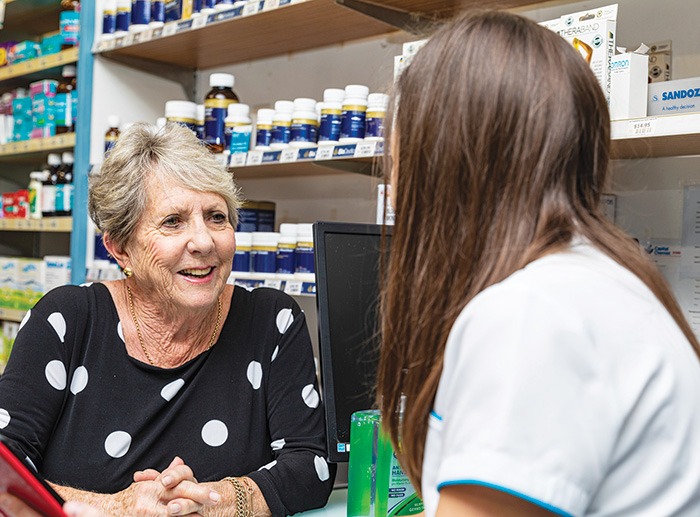 A focus on SGLT2is
A focus on SGLT2is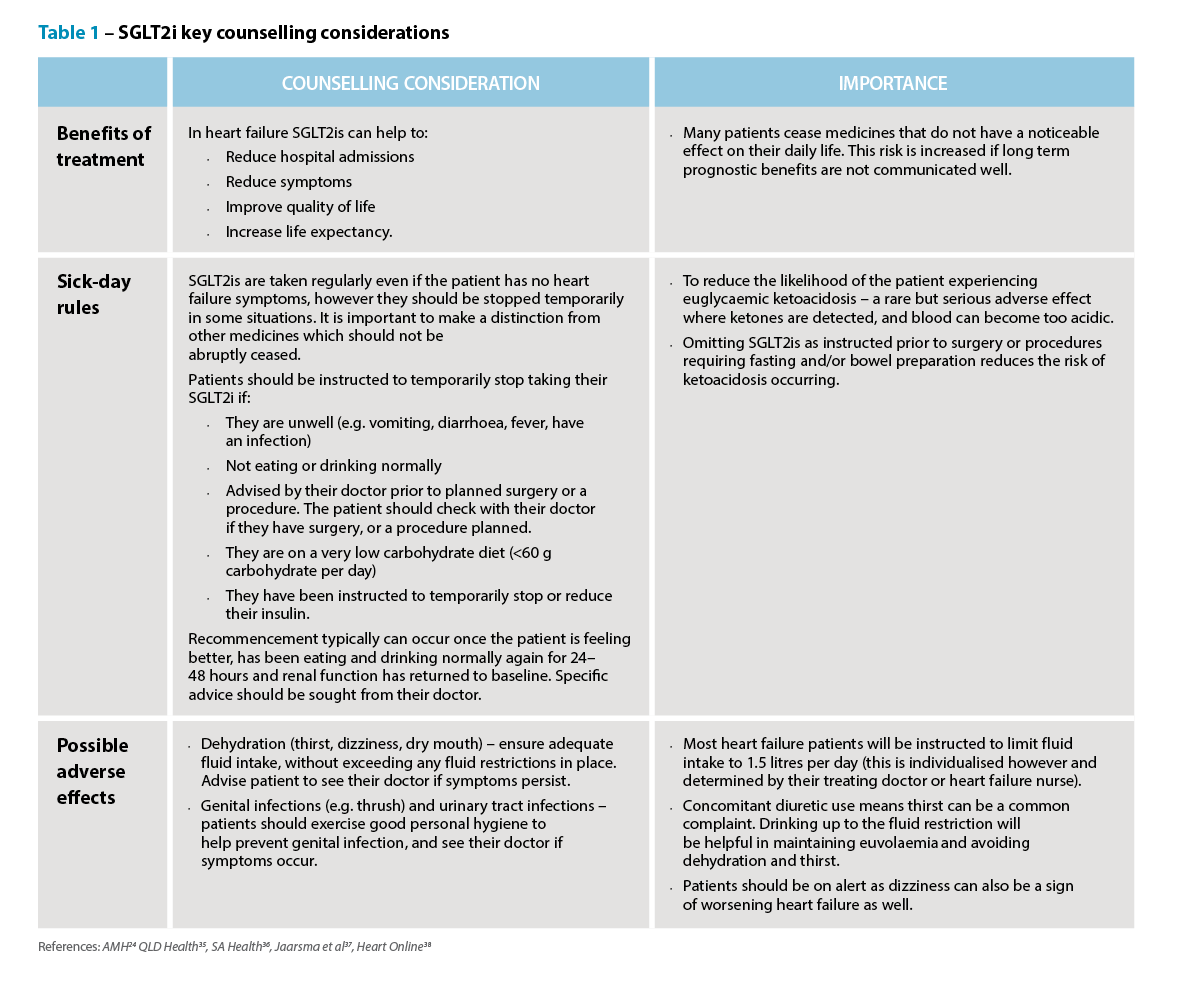 Knowledge to practice
Knowledge to practice 
 Professor Anthony Lawler, Australian Government Chief Medical Officer,
Professor Anthony Lawler, Australian Government Chief Medical Officer, 
 This CPD activity is supported by an unrestricted education grant by Reckitt.[/caption]
This CPD activity is supported by an unrestricted education grant by Reckitt.[/caption]
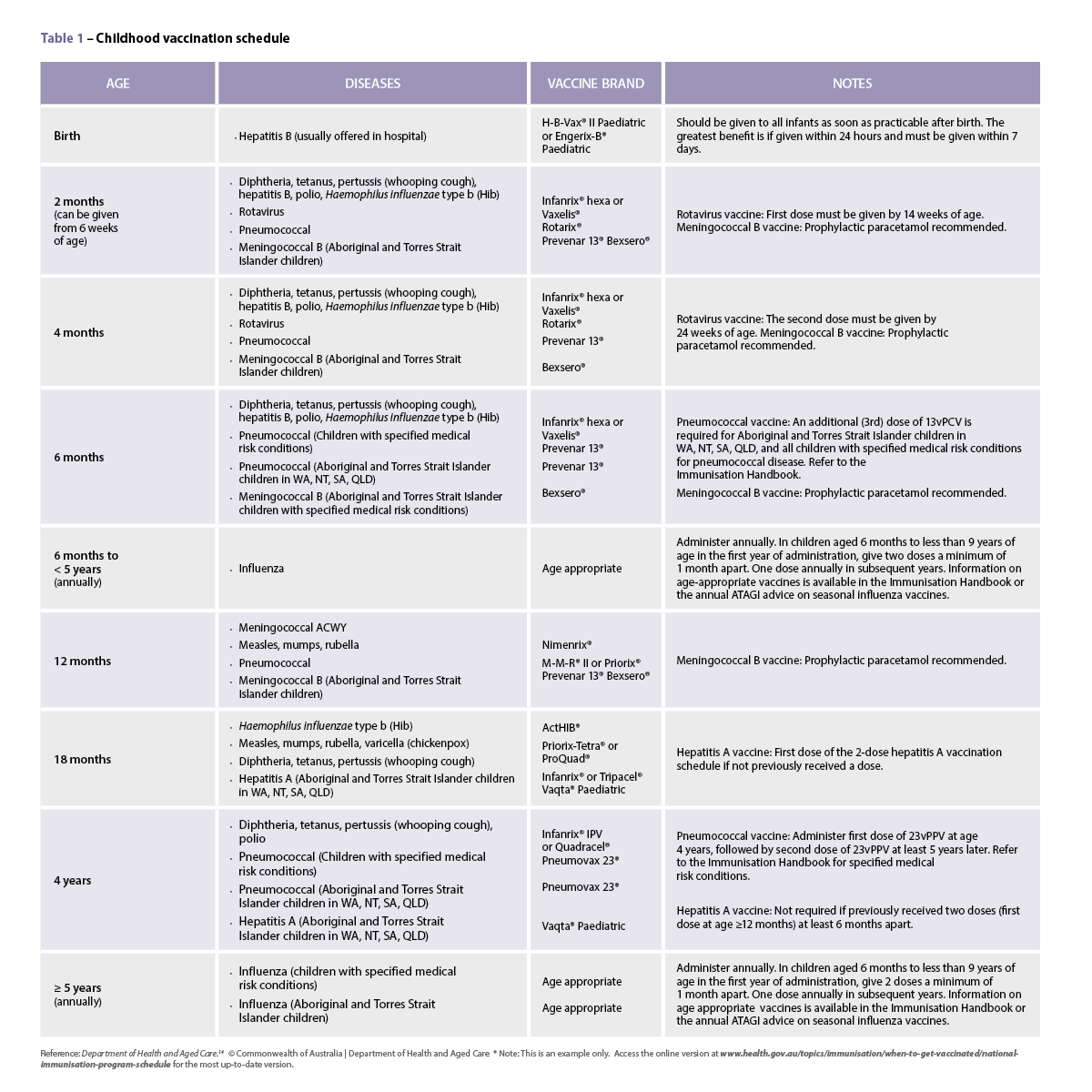 Case scenario
Case scenario
